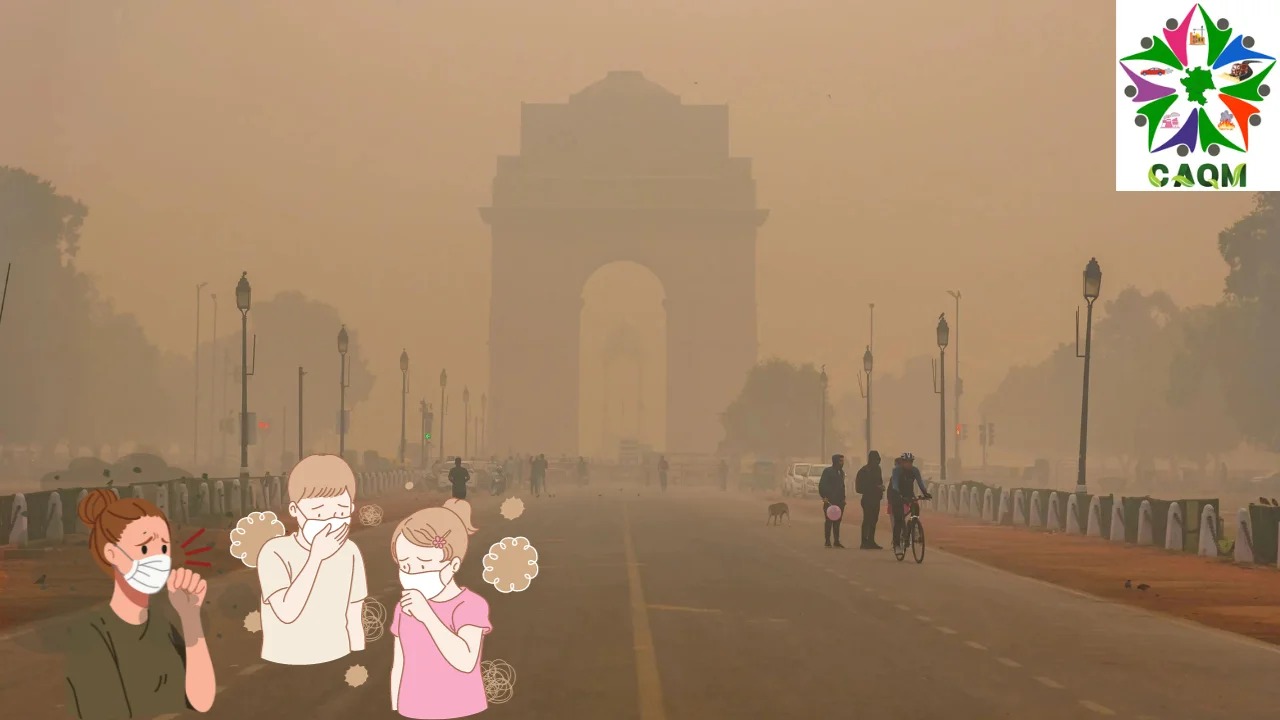In its recent meeting on November 3, 2023, the Sub-Committee responsible for implementing the Graded Response Action Plan (GRAP) under the Commission for Air Quality Management in NCR & Adjoining Areas (CAQM) reached a unanimous decision. They decided to continue monitoring the Air Quality in the NCR region before considering the implementation of more stringent and disruptive actions outlined in Stage-IV of GRAP. This decision was made because the average Air Quality Index (AQI) for Delhi had begun to show a declining trend.
8-Point Action Plan
An 8-point action plan as per Stage-IV of GRAP is applicable with immediate effect from today in the entire NCR. This 8-point action plan includes steps to be implemented/ ensured by different agencies and Pollution Control Boards of NCR and DPCC. These steps are:
- Stop entry of truck traffic into Delhi (except for trucks carrying essential commodities/ providing essential services and all LNG/ CNG/ electric trucks).
- Do not permit LCVs registered outside Delhi, other than EVs/ CNG/ BS-VI diesel, to enter Delhi, except those carrying essential commodities/ providing essential services.
- Ban on plying of Delhi – registered diesel operated Medium Goods Vehicles (MGVs) and Heavy Goods Vehicles (HGVs) in Delhi, except those carrying essential commodities/ providing essential services.
- Ban C&D activities also in linear public projects such as highways, roads, flyovers, overbridges, power transmission, pipelines etc.
- NCR State Govts. and GNCTD may take a decision on discontinuing physical classes even for classes VI – IX, class XI and conduct lessons in an online mode.
- NCR State Governments/ GNCTD to take a decision on allowing public, municipal and private offices to work on 50% strength and the rest to work from home.
- Central Government may take appropriate decision on permitting work from home for employees in Central Government offices.
- State Governments may consider additional emergency measures like closure of colleges/ educational institutions and closure of non-emergency commercial activities, permitting running of vehicles on odd-even basis of registration numbers etc.
Further, the CAQM appeals to the citizens of NCR to cooperate in implementing GRAP and follow the steps mentioned in the Citizen Charter under GRAP. Citizens are advised to avoid outdoor activities and stay indoors, as much as possible.
The revised schedule of GRAP is available on the Commission’s website.
About GRAP
GRAP stands for Graded Response Action Plan. It is a set of emergency measures that are implemented in Delhi and the NCR to combat air pollution. The plan is implemented by the Commission for Air Quality Management in NCR & Adjoining Areas (CAQM).
4 Stage Plan under GRAP
GRAP is a four-stage plan, with each stage corresponding to a different level of air pollution. The stages are as follows:
- Stage 1 (Poor Air Quality, AQI 201-300). Measures include restricting the use of private diesel vehicles, banning construction activities, and closing schools and colleges.
- Stage 2 (Very Poor Air Quality, AQI 301-400). Measures include banning the entry of trucks into Delhi-NCR, closing brick kilns, and increasing the frequency of public transportation.
- Stage 3 (Severe Air Quality, AQI 401-450). Measures include stopping all construction activities, closing all schools and colleges, and banning the entry of all non-essential vehicles into Delhi-NCR.
- Stage 4 (Severe+ Air Quality, AQI above 450). Measures include shutting down all industries and commercial establishments, except for essential services.
GRAP is a dynamic plan. The CAQM can implement any of the measures at any stage, depending on the severity of the air pollution situation.
GRAP is an important tool for combating air pollution in Delhi-NCR. It has been credited with reducing air pollution levels in the region in recent years. However, the plan has also been criticized for being reactive and for not addressing the root causes of air pollution.
Benefits
- It helps to reduce air pollution levels in Delhi-NCR.
- It protects the health of people living in the region.
- It sends a strong message that the government is committed to tackling air pollution.
Challenges associated
- It can be disruptive to people’s lives and businesses.
- It can be difficult to enforce, especially during times of high air pollution.
- It does not address the root causes of air pollution, such as vehicle emissions and industrial pollution.
Overall, GRAP is an important tool for combating air pollution in Delhi-NCR. However, it is important to address the root causes of air pollution in order to achieve a sustainable solution.
- Weekly Current Affairs 2025 PDF For Bank, SSC, UPSC Exams
- Unsung Heroes of India: 10 Unknown Freedom Fighters You Should Know
- 26 December Current Affairs 2023 in English
- Daily Current Affairs 2025, Check Today’s Current Affairs
- April Month Current Affairs 2024, Download PDF
- June Month Current Affairs 2024, Download PDF

Hello, I’m Aditi, the creative mind behind the words at Oliveboard. As a content writer specializing in state-level exams, my mission is to unravel the complexities of exam information, ensuring aspiring candidates find clarity and confidence. Having walked the path of an aspirant myself, I bring a unique perspective to my work, crafting accessible content on Exam Notifications, Admit Cards, and Results.
At Oliveboard, I play a crucial role in empowering candidates throughout their exam journey. My dedication lies in making the seemingly daunting process not only understandable but also rewarding. Join me as I break down barriers in exam preparation, providing timely insights and valuable resources. Let’s navigate the path to success together, one well-informed step at a time.






